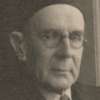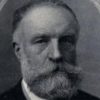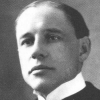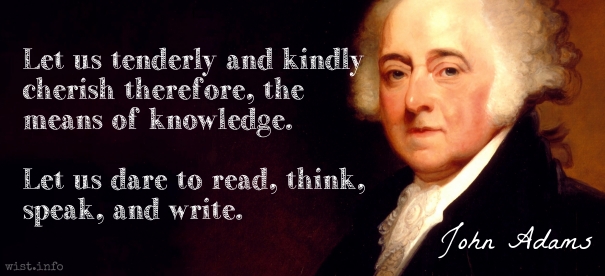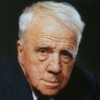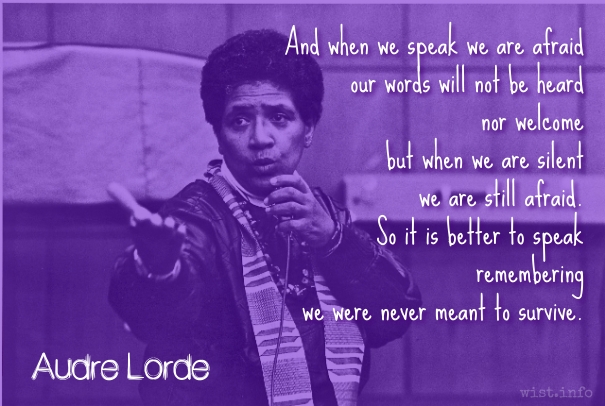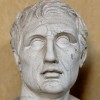Under all speech that is good for anything there lies a silence that is better. Silence is deep as Eternity; speech is shallow as Time.
Thomas Carlyle (1795-1881) Scottish essayist and historian
“Sir Walter Scott,” London and Westminster Review No. 12 and 55, Art. 2 (1838-01)
(Source)
A review of Scott's Memoirs of the Life of Sir Walter Scott, Baronet, Vols. 1-6 (1837). Reprinted in Carlyle, Critical and Miscellaneous Essays (1827-1855).
Quotations about:
speech
Note not all quotations have been tagged, so Search may find additional quotes on this topic.
As the Swiss inscription says: Sprechen ist silbern, Schweigen ist golden — “Speech is silvern, Silence is golden”; or, as I might rather express it: speech is of time, silence is of eternity.
Thomas Carlyle (1795-1881) Scottish essayist and historian
Sartor Resartus, Book 3, ch. 3 (1831)
(Source)
It is all right to say exactly what you think if you have learned to think exactly.
Marcelene Cox (1900-1998) American writer, columnist, aphorist
“Ask Any Woman” column, Ladies’ Home Journal (1945-11)
(Source)
Cox provided a variant of this aphorism in the 1959-01 issue of LHJ: "Anyone has the right to say what he thinks, if he thinks."
What we commonly have in our mind when we speak of religion is a definite set of doctrines, of a more or less metaphysical character, formulated in a creed and supported by an organization distinct from the state. And the first thing we have to learn about the religion of the Greeks is that it included nothing of the kind. There was no church, there was no creed, there were no articles. Priests there were, but they were merely public officials, appointed to perform certain religious rites. The distinction between cleric and layman, as we know it, did not exist; the distinction between poetry and dogma did not exist; and whatever the religion of the Greeks may have been, one thing at any rate is clear, that it was something very different from all that we are in the habit of associating with the world.
G. Lowes Dickinson (1862-1932) British political scientist and philosopher [Goldsworthy "Goldie" Lowes Dickinson]
The Greek View of Life, ch. 1 “Religion,” sec. 1 (1911)
(Source)
I suggested a plan one time to shorten the Senate debating. Every time a Senator tells all he knows, make him sit down. That will shorten it. Some of them wouldn’t be able to answer roll call.
The last few days I have read various addresses made on Lincoln’s Birthday. Every Politician always talks about him, but none of them ever imitate him.
A foolish man speaks foolishness.
[Μῶρα γὰρ μῶρος λέγει.]
Euripides (485?-406? BC) Greek tragic dramatist
Bacchæ [Βάκχαι], l. 369 [Tiresias/Τειρεσίας] (405 BC) [tr. Wodhull (1809)]
(Source)
To Cadmus, about his grandson, Pentheus. (Source (Greek)). Alternate translations:
Folly issues from the mouth of fools.
[tr. Buckley (1850)]
Fools still speak folly.
[tr. Milman (1865)]
Fools blurt their folly out.
[tr. Rogers (1872), l. 357]
The words of a fool are folly.
[tr. Coleridge (1891)]
Fools alone speak folly.
[tr. Way (1898)]
Blind words and a blind heart.
[tr. Murray (1902)]
The words of fools finish in folly.
[tr. Arrowsmith (1960)]
He who speaks folly is himself a fool.
[tr. Kirk (1970)]
The things he has said reveal the depth of his folly.
[tr. Vellacott (1973)]
It is a fool who folly speaks.
[tr. Neuburg (1988)]
You can tell a dangerous fool by his own words.
[tr. Cacoyannis (1982)]
For a fool speaks folly.
[tr. Blessington (1993)]
For Pentheus is a fool and says foolish things.
[tr. Esposito (1998)]
He who speaks foolishness is a fool.
[tr. Woodruff (1999)]
The fool speaks foolish things.
[tr. Gibbons/Segal (2000), l. 435]
His talk is folly and he's a fool.
[tr. Kovacs (2002)]
Often a fool speaks foolishly.
[tr. Valerie (2005)]
A man who's mad tends to utter madness.
[tr. Johnston (2008)]
His foolish words will end in folly.
[tr. Robertson (2014)]
A fool says foolish things.
[tr. @sentantiq (2016)]
The speech of the fool is foolish.
[tr. @sentantiq (2018)]
The tongue of a fool makes a foolish noise.
[tr. Behr/Foster (2019)]
For a foolish man says foolish things.
[tr. Buckley/Sens/Nagy (2020)]
Neither his inability to speak, who understands his subject but cannot set it forth in words, nor his ignorance, to whom substance is lacking though words abound, can merit commendation; and if I had to choose one of the two, I should prefer uneloquent good sense to loquacious folly.
[Neque infantiam eius, qui rem norit, sed eam explicare dicendo non queat, neque inscientiam illius, cui res non suppetat, verba non desint, esse laudandam; quorum si alterum sit optandum, malim equidem indisertam prudentiam quam stultitiam loquacem]
Marcus Tullius Cicero (106-43 BC) Roman orator, statesman, philosopher
De Oratore [On the Orator, On Oratory], Book 3, ch. 35 (3.35) / sec. 142 (55 BC) [tr. Watson (1860)]
(Source)
(Source (Latin)). Alternate translations:
A Knowledge of Things, without an Ability of expressing them, no more deserves the Name of Eloquence, than a Fluency of Words, join'd to an Ignorance of Things: For my part, were I to take my Choice, I should prefer good Sense, tho' uneloquent, to Nonsense, let it be ever so flowing.
[tr. Guthrie (1755)]
Neither a knowledge of things, without ability to express them, nor a fluency fo words, without ideas, be considered as deserving the name of eloquence: for my part, were I to take my choice, I should prefer good sense, though ineloquent, to nonsense, however flowing.
[Source (1808)]
Neither the ineloquence which cannot impart what it knows, nor the ignorance that is fluent without knowledge, be deemed a subject for commendation; though, if the alternative be unavoidable, I should very much prefer ineloquent information to ignorant loquacity.
[tr. Calvert (1870)]
If have to choose between the two, I would rather have sound common sense without eloquence, than folly with a fine flow of language.
[ed. Harbottle (1906)]
Neither the tongue-tied silence of the man who knows the facts but cannot explain them in language, nor the ignorance of the person who is deficient in facts but has no lack of words, is deserving of praise. And if one had to choose between them, for my part I should prefer wisdom lacking power of expression to talkative folly.
[tr. Rackham (1942)]
No praise is due to the dumbness of the person who has mastered the matter but cannot unfold it in speech, nor, conversely, to the ignorance of the one who does not have the subject matter at his command, but has no lack of words. If we must choose between these alternatives, I myself would prefer inarticulate wisdom to babbling stupidity.
[tr. May/Wisse (2001)]
Not to talk with people although they can be talked with is to waste people. To talk with people although they can’t be talked with is to waste words. A man of understanding does not waste people, but he also does not waste words.
[子曰、可與言、而不與之言、失人、不可與言、而與之言、失言、知者不失人、亦不失言。]
Confucius (c. 551- c. 479 BC) Chinese philosopher, sage, politician [孔夫子 (Kǒng Fūzǐ, K'ung Fu-tzu, K'ung Fu Tse), 孔子 (Kǒngzǐ, Chungni), 孔丘 (Kǒng Qiū, K'ung Ch'iu)]
The Analects [論語, 论语, Lúnyǔ], Book 15, verse 8 (15.8) (6th C. BC – 3rd C. AD) [tr. Dawson (1993)]
(Source)
(Source (Chinese)). Older translations use Legge's original verse divisions and numbering (15.7).
The passage contains a native pun, combining both noun and verb senses of yén [言] (talk), which is difficult to translate into English (leading to blends of "speak" and "talk" and "words"). Alternate translations:
When a man may be spoken with, not to speak to him is to err in reference to the man. When a man may not be spoken with, to speak to him is to err in reference to our words. The wise err neither in regard to their man nor to their words.
[tr. Legge (1861), 15.7]
Not to speak to a man to whom you ought to speak, is to lose your man; to speak to one to whom you ought not to speak is to lose your words. those who are wise will not lose their man, nor yet their words.
[tr. Jennings (1895), 15.7]
When you meet the proper person to speak to and do not speak out, you lose your opportunity; but when you meet one who is not a proper person to speak to and you speak to him, you waste your words. A man of intelligence never loses his opportunity, neither does he waste his words.
[tr. Ku Hung-Ming (1898), 15.7]
Not to enlighten one who can be enlightened is to waste a man; to enlighten one who cannot be enlightened is to waste words. The intelligent man neither wastes his man nor his words.
[tr. Soothill (1910), 15.7]
When you should talk to a man, and don’t, you lose the man; when it’s no use talking to a man, and you talk to him, you waste words. An intelligent man wastes (loses) neither men nor words.
[tr. Pound (1933), 15.7]
Not to talk to one who could be talked to, is to waste a man. To talk to those who cannot be talked to, is to waste one's words. He who is truly wise never wastes a man; but on the other hand, he never wastes his words.
[tr. Waley (1938), 15.7]
If we fail to speak with a man who can be spoken with, we lose a man. If we do speak with a man who cannot be spoken with, our words go for nought. The wise lose neither man nor words.
[tr. Ware (1950), 15.8]
When you find a person worthy to talk to and fail to talk to him, you have lost your man. When you find a man unworthy to talk to and you talk to him, you have lost (i.e., wasted) your words. A wise man neither loses his man, nor loses his words.
[tr. Lin Yutang (1938)]
To fail to speak to a man who is capable of benefiting is to let a man go to waste. To speak to a man who is incapable of benefiting is to let one's words go to waste. A wise man lets neither men nor words go to waste.
[tr. Lau (1979), 15.8]
When dealing with a man who is capable of understanding your teaching, if you do not teach him, you waste the man. When dealing with a man who is incapable of understanding your teaching, if you do teach him, you waste your teaching. A wise teacher wastes no man and wastes no teaching.
[tr. Leys (1997), 15.8]
If a man is worth talking to and you do not talk to him, you lose a man; if a man is not worth talking to and you talk to him, you lose your words. The man of wisdom neither loses a man nor loses his words.
[tr. Huang (1997), 15.8]
When you should talk with one, you do not talk with one, it means to lose the people. When you should not talk with one, you talk with one, it means to lose the word. A wise person does not lose the people, and does not lose the word too.
[tr. Cai/Yu (1998), 15.8 / #392]
To fail to speak to someone who can be engaged is to let that person go to waste; to speak to someone who cannot be engaged is to waste your words. The wise [zhi] do not let people go to waste, but they do not waste their words, either.
[tr. Ames/Rosemont (1998), 15.8]
If he can be talked to and you do not talk to him, you waste the man. If he cannot be talked to and you talk to him, you waste your talk. The knowledgeable will not waste a man, but will also not waste his talk.
[tr. Brooks/Brooks (1998), 15.8]
When a person is capable of understanding your words, and you refuse to speak, you're wasting a person. When a person isn't capable of understanding your words, and you speak anyway, you're wasting words. The wise waste neither words nor people.
[tr. Hinton (1998), 15.8]
If it's someone you ought to speak to and you fail to speak, you waste a person. If it's someone you ought not to speak to and you speak, you waste words. The wise man doesn't waste people and doesn't waste words, either.
[tr. Watson (2007), 15.8]
Not to speak to a man who is capable of absorbing what you say is to let the man go to waste. To speak to a man who is incapable of absorbing what you say is to let your words go to waste. A person of wisdom does not let either men or words go to waste.
[tr. Annping Chin (2014), 15.8]
When it is appropriate and feasible to speak [and give advice] to a person, but you refrain from doing so, you will lose a friend. When it is inappropriate or infeasible to speak to a person, but you speak anyhow, you misspeak.
[tr. Li (2020), 15.8]
Take care never to speak what you have not weighed and pondered beforehand; nor interject your own words on the spur of the moment and in the midst of another’s; for you must listen and converse in turn, with set times for speech and for silence.
Clement of Alexandria (c. AD 150 - c. 215 ) Christian theologian, philosopher, Church Father [Κλήμης ὁ Ἀλεξανδρεύς, Titus Flavius Clemens]
“To the Newly Baptized / Exhortation to Endurance” [tr. Butterworth]
(Source)
The middles cleave to euphemisms not just because they’re an aid in avoiding facts. They like them also because they assist their social yearnings towards pomposity. This is possible because most euphemisms permit the speaker to multiply syllables, and the middle class confuses sheer numerousness with weight and value.
Paul Fussell (1924-2012) American cultural and literary historian, author, academic
Class (1983)
(Source)
Make sure you have finished speaking before your audience has finished listening.
Dorothy Sarnoff (1914-2008) American opera singer, actress, image consultant
Speech Can Change Your Life (1970)
(Source)
And speech he has learned, and thought
So swift, and the temper of mind
To dwell within cities, and not to lie bare
Amid the keen, biting frosts
Or cower beneath pelting rain;
Full of resource against all that comes to him
is Man. Against Death alone
He is left with no defence.[καὶ φθέγμα καὶ ἀνεμόεν φρόνημα καὶ ἀστυνόμους
ὀργὰς ἐδιδάξατο καὶ δυσαύλων
πάγων ὑπαίθρεια καὶ δύσομβρα φεύγειν βέλη
παντοπόρος: ἄπορος ἐπ᾽ οὐδὲν ἔρχεται
τὸ μέλλον: Ἅιδα μόνον φεῦξιν οὐκ ἐπάξεται.]Sophocles (496-406 BC) Greek tragic playwright
Antigone, l. 354ff, Stasimon 1, Strophe 2 [Chorus] (441 BC) [tr. Kitto (1962)]
(Source)
Original Greek. Alternate translations:
Language and lofty thought,
And dispositions meet for order'd cities,
These he hath taught himself; -- and how to shun
The shafts of comfortless winter, --
Both those which smite when the sky is clear,
And those which fall in showers; --
with plans for all things,
Planless in nothing, meets he the future!
Of death alone the avoidance
No foreign aid will bring.
[tr. Donaldson (1848)]
Speech and the wind-swift speed of counsel and civic wit,
He hath learnt for himself all these; and the arrowy rain to fly
And the nipping airs that freeze, 'neath the open winter sky.
He hath provision for all: fell plague he hath learnt to endure;
Safe whate'er may befall: yet for death he hath found no cure.
[tr. Storr (1859)]
Wise utterance and wind-swift thought, and city-moulding mind,
And shelter from the clear-eyed power of biting frost,
He hath taught him, and to shun the sharp, roof-penetrating rain, --
Full of resource, without device he meets no coming time;
From Death alone he shall not find reprieve;
No league may gain him that relief.
[tr. Campbell (1873)]
Speech and thought fast as the wind and the moods that give order to a city he has taught himself, and how to flee the arrows of the inhospitable frost under clear skies and the arrows of the storming rain. He has resource for everything. Lacking resource in nothing he strides towards what must come. From Death alone he shall procure no escape.
[tr. Jebb (1891)]
And speech, and wind-swift thought, and all the moods that mould a state, hath he taught himself; and how to flee the arrows of the frost, when 'tis hard lodging under the clear sky, and the arrows of the rushing rain; yea, he hath resource for all; without resource he meets nothing that must come: only against Death shall he call for aid in vain.
[tr. Jebb (1917)]
Words also, and thought as rapid as air,
He fashions to his good use; statecraft is his,
And his the skill that deflects the arrows of snow,
The spears of winter rain: from every wind
He has made himself secure -- from all but one:
In the late wind of death he cannot stand.
[tr. Fitts/Fitzgerald (1939)]
The use of language, the wind-swift motion of brain
He learnt; found out the laws of living together
In cities, building him shelter against the rain
And wintry weather.
There is nothing beyond his power. His subtlety
Meeteth all chance, all danger conquereth.
For every ill he hath found its remedy,
Save only death.
[tr. Watling (1947), l. 295ff]
Language, and thought like the wind
and the feelings that make the town,
he has taught himself, and shelter against the cold,
refuge from rain. He can always help himself.
He faces no future helpless. There's only death
that he cannot find an escape from.
[tr. Wyckoff (1954)]
And speech and thought, quick as the wind
and the mood and mind for law that rules the city --
all these he has taught himself
and shelter from the arrows of the frost
when there's rough lodging under the cold clear sky
and the shafts of lashing rain --
ready, resourceful man!
Never without resources
never an impasse as he marches on the future --
only Death, from Death alone he will find no rescue.
[tr. Fagles (1982)]
Language and a mind swift as the wind
For making plans --
These he has taught himself --
And the character to live in cities under law.
He's learned to take cover from a frost
And escape sharp arrows of sleet.
He has the means to handle every need,
Never steps toward the future without the means.
Except for Death: He's got no relief from that.
[tr. Woodruff (2001)]
Both language and thought swift as wind
and impulses that govern cities,
he has taught himself, as well as how
to escape the shafts of rain
while encamped beneath open skies.
All resourceful, he approaches no future thing
to come without resource. From Hades alone
he will not contrive escape.
[tr. Tyrell/Bennett (2002)]
And man has learnt speech and thought, swifter than the wind he mastered
And learnt to govern his cities well
And this omniscient being has learnt how to avoid the blasts of the wild open air: the arrows of the freezing night, the dreadful wind driven piercing gale!
He’s prepared for all events bar Death and from Death he can find no escape.
[tr. Theodoridis (2004)]
He’s taught himself speech and wind-swift thought,
trained his feelings for communal civic life,
learning to escape the icy shafts of frost,
volleys of pelting rain in winter storms,
the harsh life lived under the open sky.
That’s man -- so resourceful in all he does.
There’s no event his skill cannot confront --
other than death -- that alone he cannot shun.
[tr. Johnston (2005), l. 405ff]
He taught himself language and wind-like thought and city-ruling urges, how to flee the slings of frost under winter's clear sky and the arrows of stormy rain, ever-resourceful. Against no possibility is he at a loss. For death alone he finds no aid.
[tr. Thomas (2005)]
It is absurd to hold that a man ought to be ashamed of being unable to defend himself with his limbs but not of being unable to defend himself with reason when the use of reason is more distinctive of a human being than the use of his limbs.
[πρὸς δὲ τούτοις ἄτοπον εἰ τῷ σώματι μὲν αἰσχρὸν μὴ δύνασθαι βοηθεῖν ἑαυτῷ, λόγῳ δ᾽ οὐκ αἰσχρόν: ὃ μᾶλλον ἴδιόν ἐστιν ἀνθρώπου τῆς τοῦ σώματος χρείας.]
Aristotle (384-322 BC) Greek philosopher
Rhetoric [Ῥητορική; Ars Rhetorica], Book 1, ch. 1, sec. 12 (1.1.12) / 1355b.1 (350 BC) [tr. Roberts (1924)]
(Source)
(Source (Greek)). Alternate translations:
Absurd were it, if inability to defend oneself, in the case of the body be disgraceful, but in the case of the reason, which is more peculiarly the characteristic of man than the use of his body, be not disgraceful.
[Source (1847)]
It were absurd, if, while it is disgraceful for a man not to be able to assist himself by his person, it were not disgraceful to be unable to do this by his speech, which is more a peculiarity of man than the exercise of the body.
[tr. Buckley (1850)]
It would be absurd that, while incapacity for physical self-defence is a reproach, incapacity for mental defence should be none; mental effort being more distinctive of man than bodily effort.
[tr. Jebb (1873)]
It would be absurd if it were considered disgraceful not to be able to defend oneself with the help of the body, but not disgraceful as far as speech is concerned, whose use is more characteristic of man than that of the body.
[tr. Freese (1926)]
It would make no sense for an inability to defend oneself by physical means to be a source of shame, while an inability to defend oneself by verbal means was not, since the use of words is more specifically human than the use of the body.
[tr. Waterfield (2018)]
It is strange if it is a shameful thing not to be able to come to one's own aid with one's body but not a shameful thing to be unable to do so by means of argument, which is to a greater degree a human being's own than is the use of the body.
[tr. Bartlett (2019)]
If animals could speak as fabulists have feigned, the dog would be a blunt, blundering, outspoken, honest fellow, but the cat would have the rare talent of never saying a word too much.
Philip Gilbert Hamerton (1834-1894) British artist, art critic and author.
Chapters on Animals, ch. 4 “Cats” (1893)
(Source)
Sometimes misattributed to Mark Twain.
A man’s tongue is a glib and twisty thing …
plenty of words there are, all kinds at its command —
with all the room in the world for talk to range and stray.
And the sort you use is just the sort you’ll hear.[Στρεπτὴ δὲ γλῶσσ᾽ ἐστὶ βροτῶν, πολέες δ᾽ ἔνι μῦθοι
παντοῖοι, ἐπέων δὲ πολὺς νομὸς ἔνθα καὶ ἔνθα.
ὁπποῖόν κ᾽ εἴπῃσθα ἔπος, τοῖόν κ᾽ ἐπακούσαις.]Homer (fl. 7th-8th C. BC) Greek author
The Iliad [Ἰλιάς], Book 20, l. 248ff (20.248) [Aeneas] (c. 750 BC) [tr. Fagles (1990), l. 287ff]
(Source)
Original Greek. Alternate translations:
A man’s tongue is voluble, and pours
Words out of all sorts ev’ry way. Such as you speak you hear.
[tr. Chapman (1611), ll. 228-29]
Armed or with truth or falsehood, right or wrong,
So voluble a weapon is the tongue;
Wounded, we wound; and neither side can fail,
For every man has equal strength to rail.
[tr. Pope (1715-20)]
The tongue of man is voluble, hath words
For every theme, nor wants wide field and long,
And as he speaks so shall he hear again.
[tr. Cowper (1791), ll. 309-11]
The language of mortals is voluble, and the discourses in it numerous and varied: and vast is the distribution of words here and there. Whatsoever word thou mayest speak, such also wilt thou hear.
[tr. Buckley (1860)]
For glibly runs the tongue, and can at will
Give utt’rance to discourse in ev’ry vein;
Wide is the range of language; and such words
As one may speak, another may return.
[tr. Derby (1864)]
Glib is the tongue of man, and many words are therein of every kind, and wide is the range of his speech hither and thither. Whatsoever word thou speak, such wilt thou hear in answer.
[tr. Leaf/Lang/Myers (1891)]
The tongue can run all whithers and talk all wise; it can go here and there, and as a man says, so shall he be gainsaid.
[tr. Butler (1898)]
Glib is the tongue of mortals, and words there be therein many and manifold, and of speech the range is wide on this side and on that. Whatsoever word thou speakest, such shalt thou also hear.
[tr. Murray (1924)]
The tongue of man is a twisty thing, there are plenty of words there
of every kind, the range of words is wide, and their variance.
The sort of thing you say is the thing that will be said to you.
[tr. Lattimore (1951)]
Men have twisty tongues, and on them speech of all kinds; wide is the grazing land of words, both east and west. The manner of speech you use, the same you are apt to hear.
[tr. Fitzgerald (1974)]
Pliant and glib is the tongue men have, and the speeches in it are many and various -- far do the words range hither and thither; such as the word you speak is the word which you will be hearing.
[tr. Merrill (2007)]
Now, that man is more of a political animal than bees or any other gregarious animals is evident. Nature, as we often say, makes nothing in vain, and man is the only animal whom she has endowed with the gift of speech.
[διότι δὲ πολιτικὸν ὁ ἄνθρωπος ζῷον πάσης μελίττης καὶ παντὸς ἀγελαίου ζῴου μᾶλλον, δῆλον. οὐθὲν γάρ, ὡς φαμέν, μάτην ἡ φύσις ποιεῖ·]
Aristotle (384-322 BC) Greek philosopher
Politics [Πολιτικά], Book 1, ch. 2, sec. 10 / 1253a.7-11 [tr. Jowett (1885)]
(Source)
Original Greek. Alternate translations:
- "And that man is a social animal in a fuller sense than any bee or gregarious animal is evident; for nature, we say, makes nothing without an object, and man is the only animal that possesses rational speech." [tr. Bolland (1877)]
- "The gift of speech also evidently proves that man is a more social animal than the bees, or any of the herding cattle: for nature, as we say, does nothing in vain, and man is the only animal who enjoys it." [tr. Ellis (1912)]
- "And why man is a political animal in a greater measure than any bee or any gregarious animal is clear. For nature, as we declare, does nothing without purpose; and man alone of the animals possesses speech." [tr. Rackham (1932)]
- "That man is much more a political animal than any kind of bee or any herd animal is clear. For, as we assert, nature does nothing in vain; and man alone among the animals has speech." [tr. Lord (1984)]
- "It is also clear why a human is more of a political animal than any bee or any other gregarious animal. For nature does nothing pointlessly, as we say, and a human being alone among the animals has speech." [tr. Reeve (2007)]
- "It is clear that man is a political animal, more than every bee and herd animal: for nature makes nothing in vain and man alone of living things has reason." [tr. @sentantiq (2011)]
Language is civilization itself. The Word, even the most contradictory word, binds us together. Wordlessness isolates.
Thomas Mann (1875-1955) German writer, critic, philanthropist, Nobel laureate [Paul Thomas Mann]
The Magic Mountain [Der Zauberberg], Part 6, “A Good Soldier” (1924) [tr. Woods]
(Source)
Alt. trans.: "Speech is civilization itself. The word, even the most contradictory word, preserves contact -- it is silence which isolates." [tr. Lowe-Porter]
But I never was happy, never could make a good impromptu speech without several hours to prepare it.
Mark Twain (1835-1910) American writer [pseud. of Samuel Clemens]
Speech, Society of the Army of the Tennessee Annual Meeting, Chicago (12 Nov 1879)
(Source)
Twain made quips along this line several times, though there is no evidence he said the more frequently quoted "It usually takes more than three weeks to prepare a good impromptu speech." For more discussion, see here.
Political campaigns tend to be exercises in progressive degeneration. The steady increase, week after week, in excitement and strain and weariness produces an oversimplification of issues, an over dramatization of alternatives, a growing susceptibility to extreme and catastrophic statements. Candidates find themselves shouting things in the fall that they would never dream of whispering in the summer.
Arthur M. Schlesinger, Jr. (1917-2007) American historian, author, social critic
The Age of Roosevelt, ch. 33, sec. 8 (1960)
(Source)
SIR HUMPHREY: Well, Minister, if you ask me for a straight answer, then I shall say that, as far as we can see, looking at it by and large, taking one thing with another in terms of the average of departments, then in the final analysis it is probably true to say, that at the end of the day, in general terms, you would probably find that, not to put too fine a point on it, there probably wasn’t very much in it one way or the other. As far as one can see, at this stage.
We open our mouths and out flow words whose ancestries we do not even know. We are walking lexicons. In a single sentence of idle chatter we preserve Latin, Anglo-Saxon, Norse: we carry a museum inside our heads, each day we commemorate peoples of whom we have never heard.
Man is a talking animal and he will always let himself be swayed by the power of the word.
Simone de Beauvoir (1908-1986) French author, existentialist philosopher, feminist theorist
Les Belles Images (1966)
(Source)
Not everyone is worth listening to.
Alain de Botton (b. 1969) Swiss-British author
The Consolations of Philosophy, ch. 1 “Consolation For Unpopularity” (2000)
(Source)
BENEDICK: She speaks poniards and every word stabs.
William Shakespeare (1564-1616) English dramatist and poet
Much Ado About Nothing, Act 2, sc. 1, l. 244 (2.1.244) (1598)
(Source)
Kind words also produce their own image in men’s souls; and a beautiful image it is. They soothe and quiet and comfort the hearer. They shame him out of his sour, morose, unkind feelings. We have not yet begun to use kind words in such abundance as they ought to be used.
Blaise Pascal (1623-1662) French scientist and philosopher
(Attributed)
(Source)
Often attributed without citation in 19th Century works, e.g., The Golden Rule and Odd-Fellows' Family Companion, Vol. 7 (1847).
But remember that talking is one of the fine arts — the noblest, the most important, the most difficult — and its fluent harmonies may be spoiled by the intrusion of a single harsh note. Therefore conversation which is suggestive rather than argumentative, which lets out the most of each talker’s results of thought, is commonly the pleasantest and the most profitable.
The tongue is not steele, yet it cuts.
George Herbert (1593-1633) Welsh priest, orator, poet.
Jacula Prudentum, or Outlandish Proverbs, Sentences, &c. (compiler), # 838 (1640 ed.)
(Source)
Let us tenderly and kindly cherish, therefore, the means of knowledge. Let us dare to read, think, speak and write.
John Adams (1735-1826) American lawyer, Founding Father, statesman, US President (1797-1801)
“A Dissertation on the Canon and the Feudal Law” No. 4, Boston Gazette (1765-10-21)
(Source)
Brevity is the best recommendation of speech, whether in a senator or an orator.
Marcus Tullius Cicero (106-43 BC) Roman orator, statesman, philosopher
(Attributed)
(Source)
In Tryon Edwards, A Dictionary of Thoughts (1891).
I have come to believe over and over again that what is most important to me must be spoken, made verbal and shared, even at the risk of having it bruised or misunderstood.
Audre Lorde (1934-1992) American writer, feminist, civil rights activist
“The Transformation of Silence into Language and Action,” speech, Modern Language Association (28 Dec 1977)
(Source)
And when we speak we are afraid
our words will not be heard
nor welcome
but when we are silent
we are still afraid.
So it is better to speak
remembering
we were never meant to survive.
They taught me that the truth would make me free but failed to warn me of the kind of trouble I’d get into by trying to tell it — I remain duly grateful.
Margaret Atwood (b. 1939) Canadian writer, literary critic, environmental activist
“Attitude,” Commencement Address, University Of Toronto (14 Jun 1983)
(Source)
I must say I’m not very fond of oratory that’s so full of energy it hasn’t any room for facts.
An able man shows his Spirit by gentle words and resolute actions.
Even fools who keep silent are considered wise;
when they close their lips, they are deemed intelligent.The Bible (The Old Testament) (14th - 2nd C BC) Judeo-Christian sacred scripture [Tanakh, Hebrew Bible], incl. the Apocrypha (Deuterocanonicals)
Proverbs 17:28 [NRSV (2021 ed.)]
(Source)
See Twain.
Alternate translations:
Even a fool, when he holdeth his peace, is counted wise: and he that shutteth his lips is esteemed a man of understanding.
[KJV (1611)]
If a fool can hold his tongue, even he can pass for wise, and pass for clever if he keeps his lips tight shut.
[JB (1966)]
After all, even fools may be thought wise and intelligent if they stay quiet and keep their mouths shut.
[GNT (1976)]
If the fool holds his tongue, he may pass for wise; if he seals his lips, he may pass for intelligent.
[NJB (1985)]
Fools who keep quiet are deemed wise;
those who shut their lips are smart.
[CEB (2011)]
Even fools who keep silent are deemed wise;
Intelligent, while their mouth is shut.
[RJPS (2023 ed.)]
It’s better to keep your mouth shut and appear stupid than to open it and remove all doubt.
Mark Twain (1835-1910) American writer [pseud. of Samuel Clemens]
(Spurious)
This quotation, and close variants, are frequently attributed to Twain or Abraham Lincoln, but appears to have first been phrased this way by Maurice Switzer, Mrs. Goose, Her Book (1906): "It is better to remain silent at the risk of being thought a fool, than to talk and remove all doubt of it." Another point of origin is in the Bible, Proverbs 17:28: "Even a fool, when he holdeth his peace, is counted wise: and he that shutteth his lips is esteemed a man of understanding." See here for more information.
He cannot speak well, that cannot hold his Tongue.
Thomas Fuller (1654-1734) English physician, preacher, aphorist, writer
Gnomologia: Adages and Proverbs, #1820 (1732)
(Source)



